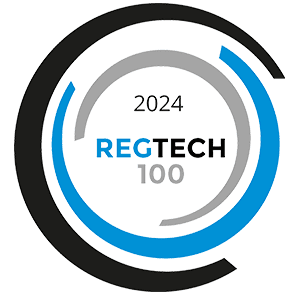2020 hasn’t been ideal, to say the least.
A year that started with a booming economy has rapidly disintegrated into a pandemic, a recession and more. Many of us are yearning for life to go back to normal. Unfortunately, it’s more likely that we’ll be expected to contend with a “new normal” for the foreseeable future.
What Ongoing Impacts Can We Expect To See?
Firms have had a few months to adjust to remote work and to changes in business processes. During that time, companies, regulators, and individuals have all seen changes to their roles, responsibilities, and ways of doing business.
Requirements Unlikely To Change
During the summer of 2020, we’ve seen that regulators are disinclined to be lenient on their requirements.
There were, for example, no changes to the deadline dates for Form CRS and Reg BI, even though firms may have needed to reduce staff or have faced time constraints because of COVID-related work absences.
Generally, firms will need to show a very serious hardship to even be considered for a grace period. This decision is reasonable since their role of protecting consumers is even more critical during times of serious financial strain.
Audit Processes Relaunch Remotely
The SEC and the regulatory bodies for most states have stopped conducting onsite audits. The stopped in March following the institution of protective social distancing measures and are likely to continue auditing remotely in the foreseeable future.
Regulators have also begun the process of (“desk”) audits. While audits were delayed for a while because examiners, like the rest of us, we’re working from home and did not have access to their typical in-office resources needed to conduct a desk audit, the regulators have made necessary adjustments to their processes in order to return to the “new normal” of desk audits.
Desk audits are easier to conduct and, for the most part, are much more cost-effective for states and for the SEC. Since the regulatory agencies will see a steep drop in travel expenses, even with the reduction in tax revenue, registered investment advisers and broker-dealers may now be subject to more frequent regulatory exams.
More frequent audits aren’t a bad thing in and of themselves; however, the most likely impact for compliance officers is more time spent preparing for audits and less time spent on analyzing regulation and developing plans to support your company.
Technology As An Expectation, Not A Luxury
Firms need to adjust to the fact that compliance technology is here to stay.
It’s not considered a frivolous expense to employ some type of technology platform to manage compliance documentation and guidelines. Instead, regulators frequently inquire as to the type of technology used to maintain compliance documentation.
Having a weak compliance program is a frequent citation during SEC reviews. There’s an expectation that companies will be proactive in finding the resources they need, maintaining the appropriate documentation, and keeping up to speed with fast-moving regulatory changes.
With more people working remotely and planning to continue working remotely even after pandemic conditions improve, companies are investing in the software and hardware needed to meet those needs. Compliance teams should be among the top departments within an organization to make sure they’re getting the tech resources they need to do their jobs.
For example, keeping audit trails and staying on the same page with the latest disclosures can become more difficult when compliance professionals are working in multiple locations. Keeping everyone on the same page can require investment in cloud-based compliance technology that tracks versioning and comments, and that keeps an audit-ready record of compliance review documentation.
Continued Upsizing Of Compliance Responsibility
The number of available compliance positions has declined over recent years, for the first time since the financial crisis of 2008. However, compliance officers’ regulatory responsibilities have done anything but decrease.
Compliance professionals’ work continues to grow, as they’re asked to become more involved in processes like:
-
- Cybersecurity
- Data security
- Digital marketing
- Identity theft and protection
As these expectations grow, compliance professionals must learn to restructure their focus and responsibilities. Their focus should be on analysis, research, developing, and maintain a deep comprehension of their ever-expanding subject matter.
More time should be allocated to complex matters, matters that could result in major issues for their firms. Routine matters should be automated or managed with more efficient processes, in order to make the appropriate bandwidth available for compliance programs.
As we move into the last part of 2020, many of us will be happy to see this challenging year-end and to get a fresh new start in 2021.
The new normal seems to be here to stay, and as we move into 2021, regulators will expect compliance to be a priority and not take a back seat to revenue generation. If you’re looking for ways to ensure your firm starts the year off on the right foot compliance-wise, it may be a good time to evaluate consulting and technology resources.
About Red Oak Compliance
Red Oak Compliance is the global advertising review software of choice in the financial services industry, serving clients with more than $19 trillion in assets under management. Red Oak’s advertising compliance review software offers quick implementation timelines, as well as agile technology that responds to client needs and is 100% Books and Records compliant. Our clients report 35% faster approvals and 70% fewer touches, with many experiencing even better results. Are you ready to minimize risk, reduce costs, and improve efficiency? Contact the Red Oak team to learn how.





